
The dies and plates of the 1951 Health issues were prepared and recess printed by Bradbury, Wilkinson on coarse paper with a vertical mesh. They were designed by J. Berry and R.S. Philips.
There were two values 1½d + ½d and 2d + 1d.
As they could be used for revenue purposes, they were inscribed Postage & Revenue.
However, this was the last time that Health stamps could be used for revenue purposes and so
subsequent issues were only inscribed Postage.
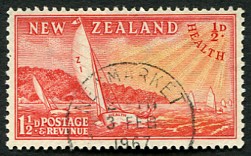

The 1½d + ½d had plate numbers A1, A2, B1 and B2 while the 2d + 1d
had plate numbers C1 and C2.
The plate numbers and imprints were at the bottom right.
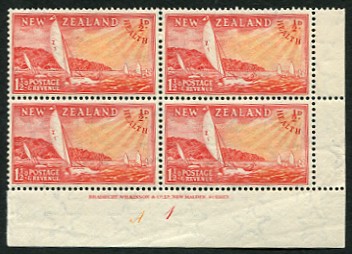
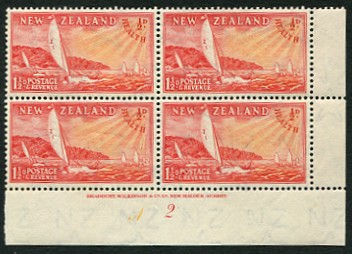
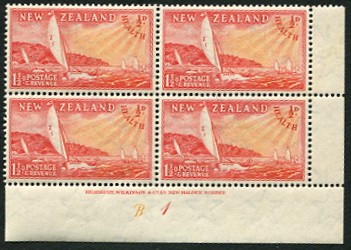
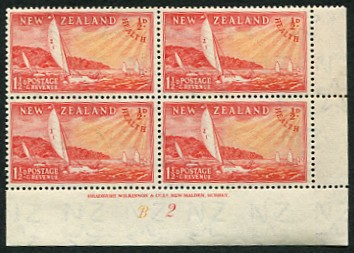
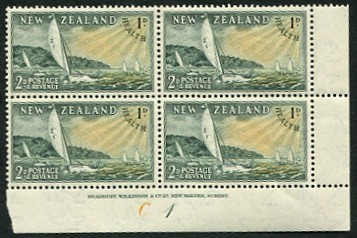
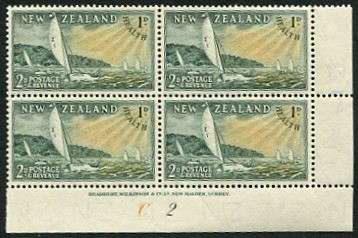
Each plate consisted of 120 stamps in 12 rows of 10.
The perforation was 13½.

First Day Cover, 1 November 1951
Postmarked at Glenelg Health Camp (Christchurch) on 1st November 1951 (the first day of issue) and addressed to Norway.
The cover shows a map of New Zealand with the 5 permanent Health Camps
that existed at that time: Pakuranga, Gisborne, Otaki, Glenelg and Roxburgh.
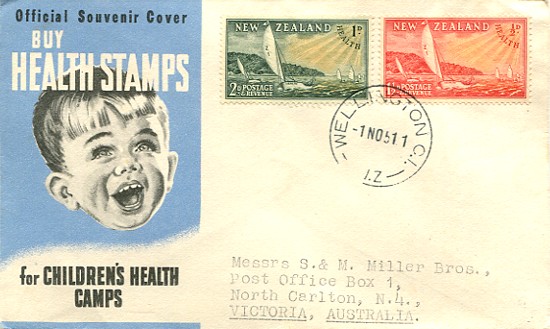
Official First Day Cover
Example of Official Souvenir Cover produced by the Federation of Health Camps and
used on the first day of issue.
It is addressed to Australia.
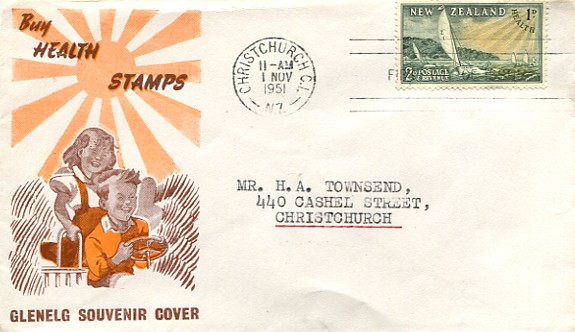
Official First Day Cover
Glenelg souvenir cover
postmarked in Christchurch on the first day of issue
and addressed locally.
Dates:
- Issued Nov 1, withdrawn 31 January 1952
Numbers sold:
- 1½d: 5,100,013; 2d: 6,122,628
The above information is taken from:
[1] The Postage Stamps of
New Zealand Vol 4, published by the
Royal Philatelic Society of New Zealand in 1964.
[2] Illustrated First Day Covers of New Zealand 1933-2000, Part 1: Health,
Stephen Jones, July 2008.
The above information is taken from The Postage Stamps of
New Zealand Vols 2 and 4, published by the
Royal Philatelic Society of New Zealand in 1950 and 1964 respectively.
All scans were made by the author.